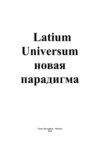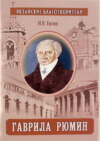Читать книгу: «Barry Lyndon», страница 6
When I think that I, the descendant of the kings of Ireland, was threatened with a caning by a young scoundrel who had just joined from Eton College—when I think that he offered to make me his footman, and that I did not, on either occasion, murder him! On the first occasion I burst into tears (I do not care to own it) and had serious thoughts of committing suicide, so great was my mortification. But my kind friend Fagan came to my aid in the circumstance, with some very timely consolation. 'My poor boy,' said he, 'you must not take the matter to heart so. Caning is only a relative disgrace. Young Ensign Fakenham was flogged himself at Eton School only a month ago: I would lay a wager that his scars are not yet healed. You must cheer up, my boy; do your duty, be a gentleman, and no serious harm can fall on you.' And I heard afterwards that my champion had taken Mr. Fakenham very severely to task for this threat, and said to him that any such proceedings for the future he should consider as an insult to himself; whereon the young ensign was, for the moment, civil. As for the sergeants, I told one of them, that if any man struck me, no matter who he might be, or what the penalty, I would take his life. And, 'faith! there was an air of sincerity in my speech which convinced the whole bevy of them; and as long as I remained in the English service no rattan was ever laid on the shoulders of Redmond Barry. Indeed, I was in that savage moody state, that my mind was quite made up to the point, and I looked to hear my own dead march played as sure as I was alive. When I was made a corporal, some of my evils were lessened; I messed with the sergeants by special favour, and used to treat them to drink, and lose money to the rascals at play: with which cash my good friend Mr. Fagan punctually supplied me.
Our regiment, which was quartered about Stade and Luneburg, speedily got orders to march southwards towards the Rhine, for news came that our great General, Prince Ferdinand of Brunswick, had been defeated-no, not defeated, but foiled in his attack upon the French under the Duke of Broglio, at Bergen, near Frankfort-on-the-Main, and had been obliged to fall back. As the allies retreated the French rushed forward, and made a bold push for the Electorate of our gracious monarch in Hanover, threatening that they would occupy it; as they had done before, when D'Estrees beat the hero of Culloden, the gallant Duke of Cumberland, and caused him to sign the capitulation of Closter Zeven. An advance upon Hanover always caused a great agitation in the Royal bosom of the King of England; more troops were sent to join us, convoys of treasure were passed over to our forces, and to our ally's the King of Prussia; and although, in spite of all assistance, the army under Prince Ferdinand was very much weaker than that of the invading enemy, yet we had the advantage of better supplies, one of the greatest Generals in the world: and, I was going to add, of British valour, but the less we say about THAT the better. My Lord George Sackville did not exactly cover himself with laurels at Minden; otherwise there might have been won there one of the greatest victories of modern times.
Throwing himself between the French and the interior of the Electorate, Prince Ferdinand wisely took possession of the free town of Bremen, which he made his storehouse and place of arms; and round which he gathered all his troops, making ready to fight the famous battle of Minden.
Were these Memoirs not characterised by truth, and did I deign to utter a single word for which my own personal experience did not give me the fullest authority, I might easily make myself the hero of some strange and popular adventures, and, after the fashion of novel-writers, introduce my reader to the great characters of this remarkable time. These persons (I mean the romance-writers), if they take a drummer or a dustman for a hero, somehow manage to bring him in contact with the greatest lords and most notorious personages of the empire; and I warrant me there's not one of them but, in describing the battle of Minden, would manage to bring Prince Ferdinand, and my Lord George Sackville, and my Lord Granby, into presence. It would have been easy for me to have SAID I was present when the orders were brought to Lord George to charge with the cavalry and finish the rout of the Frenchmen, and when he refused to do so, and thereby spoiled the great victory. But the fact is, I was two miles off from the cavalry when his Lordship's fatal hesitation took place, and none of us soldiers of the line knew of what had occurred until we came to talk about the fight over our kettles in the evening, and repose after the labours of a hard-fought day. I saw no one of higher rank that day than my colonel and a couple of orderly officers riding by in the smoke—no one on our side, that is. A poor corporal (as I then had the disgrace of being) is not generally invited into the company of commanders and the great; but, in revenge, I saw, I promise you, some very good company on the FRENCH part, for their regiments of Lorraine and Royal Cravate were charging us all day; and in THAT sort of MELEE high and low are pretty equally received. I hate bragging, but I cannot help saying that I made a very close acquaintance with the colonel of the Cravates; for I drove my bayonet into his body, and finished off a poor little ensign, so young, slender, and small, that a blow from my pigtail would have despatched him, I think, in place of the butt of my musket, with which I clubbed him down. I killed, besides, four more officers and men, and in the poor ensign's pocket found a purse of fourteen louis-d'or, and a silver box of sugar-plums; of which the former present was very agreeable to me. If people would tell their stories of battles in this simple way, I think the cause of truth would not suffer by it. All I know of this famous fight of Minden (except from books) is told here above. The ensign's silver bon-bon box and his purse of gold; the livid face of the poor fellow as he fell; the huzzas of the men of my company as I went out under a smart fire and rifled him; their shouts and curses as we came hand in hand with the Frenchmen,—these are, in truth, not very dignified recollections, and had best be passed over briefly. When my kind friend Fagan was shot, a brother captain, and his very good friend, turned to Lieutenant Rawson and said, 'Fagan's down; Rawson, there's your company.' It was all the epitaph my brave patron got. 'I should have left you a hundred guineas, Redmond,' were his last words to me, 'but for a cursed run of ill luck last night at faro.' And he gave me a faint squeeze of the hand; then, as the word was given to advance, I left him. When we came back to our old ground, which we presently did, he was lying there still; but he was dead. Some of our people had already torn off his epaulets, and, no doubt, had rifled his purse. Such knaves and ruffians do men in war become! It is well for gentlemen to talk of the age of chivalry; but remember the starving brutes whom they lead—men nursed in poverty, entirely ignorant, made to take a pride in deeds of blood—men who can have no amusement but in drunkenness, debauch, and plunder. It is with these shocking instruments that your great warriors and kings have been doing their murderous work in the world; and while, for instance, we are at the present moment admiring the 'Great Frederick,' as we call him, and his philosophy, and his liberality, and his military genius, I, who have served him, and been, as it were, behind the scenes of which that great spectacle is composed, can only look at it with horror. What a number of items of human crime, misery, slavery, go to form that sum-total of glory! I can recollect a certain day about three weeks after the battle of Minden, and a farmhouse in which some of us entered; and how the old woman and her daughters served us, trembling, to wine; and how we got drunk over the wine, and the house was in a flame, presently; and woe betide the wretched fellow afterwards who came home to look for his house and his children!
CHAPTER V. BARRY FAR FROM MILITARY GLORY
After the death of my protector, Captain Fagan, I am forced to confess that I fell into the very worst of courses and company. Being a rough soldier of fortune himself, he had never been a favourite with the officers of his regiment; who had a contempt for Irishmen, as Englishmen sometimes will have, and used to mock his brogue, and his blunt uncouth manners. I had been insolent to one or two of them, and had only been screened from punishment by his intercession; especially his successor, Mr. Rawson, had no liking for me, and put another man into the sergeant's place vacant in his company after the battle of Minden. This act of injustice rendered my service very disagreeable to me; and, instead of seeking to conquer the dislike of my superiors, and win their goodwill by good behaviour, I only sought for means to make my situation easier to me, and grasped at all the amusements in my power. In a foreign country, with the enemy before us, and the people continually under contribution from one side or the other, numberless irregularities were permitted to the troops which would not have been allowed in more peaceable times. I descended gradually to mix with the sergeants, and to share their amusements: drinking and gambling were, I am sorry to say, our principal pastimes; and I fell so readily into their ways, that though only a young lad of seventeen, I was the master of them all in daring wickedness; though there were some among them who, I promise you, were far advanced in the science of every kind of profligacy. I should have been under the provost-marshal's hands, for a dead certainty, had I continued much longer in the army: but an accident occurred which took me out of the English service in rather a singular manner.
The year in which George II died, our regiment had the honour to be present at the battle of Warburg (where the Marquis of Granby and his horse fully retrieved the discredit which had fallen upon the cavalry since Lord George Sackville's defalcation at Minden), and where Prince Ferdinand once more completely defeated the Frenchmen. During the action, my lieutenant, Mr. Fakenham, of Fakenham, the gentleman who had threatened me, it may be remembered, with the caning, was struck by a musket-ball in the side. He had shown no want of courage in this or any other occasion where he had been called upon to act against the French; but this was his first wound, and the young gentleman was exceedingly frightened by it. He offered five guineas to be carried into the town, which was hard by; and I and another man, taking him up in a cloak, managed to transport him into a place of decent appearance, where we put him to bed, and where a young surgeon (who desired nothing better than to take himself out of the fire of the musketry) went presently to dress his wound.
In order to get into the house, we had been obliged, it must be confessed, to fire into the locks with our pieces; which summons brought an inhabitant of the house to the door, a very pretty and black-eyed young woman, who lived there with her old half-blind father, a retired Jagdmeister of the Duke of Cassel, hard by. When the French were in the town, Meinherr's house had suffered like those of his neighbours; and he was at first exceedingly unwilling to accommodate his guests. But the first knocking at the door had the effect of bringing a speedy answer; and Mr. Fakenham, taking a couple of guineas out of a very full purse, speedily convinced the people that they had only to deal with a person of honour.
Leaving the doctor (who was very glad to stop) with his patient, who paid me the stipulated reward, I was returning to my regiment with my other comrade—after having paid, in my German jargon, some deserved compliments to the black-eyed beauty of Warburg, and thinking, with no small envy, how comfortable it would be to be billeted there—when the private who was with me cut short my reveries by suggesting that we should divide the five guineas the lieutenant had given me.
'There is your share,' said I, giving the fellow one piece; which was plenty, as I was the leader of the expedition. But he swore a dreadful oath that he would have half; and when I told him to go to a quarter which I shall not name, the fellow, lifting his musket, hit me a blow with the butt-end of it, which sent me lifeless to the ground: when I awoke from my> trance, I found myself bleeding with a large wound in the head, and had barely time to stagger back to the house where I had left the lieutenant, when I again fell fainting at the door.
Here I must have been discovered by the surgeon on his issuing out; for when I awoke a second time I found myself in the ground-floor of the house, supported by the black-eyed girl, while the surgeon was copiously bleeding me at the arm. There was another bed in the room where the lieutenant had been laid,—it was that occupied by Gretel, the servant; while Lischen, as my fair one was called, had, till now, slept in the couch where the wounded officer lay.
'Who are you putting into that bed?' said he languidly, in German; for the ball had been extracted from his side with much pain and loss of blood.
They told him it was the corporal who had brought him.
'A corporal?' said he, in English; 'turn him out.' And you may be sure I felt highly complimented by the words. But we were both too faint to compliment or to abuse each other much, and I was put to bed carefully; and, on being undressed, had an opportunity to find that my pockets had been rifled by the English soldier after he had knocked me down. However, I was in good quarters: the young lady who sheltered me presently brought me a refreshing drink; and, as I took it, I could not help pressing the kind hand that gave it me; nor, in truth, did this token of my gratitude seem unwelcome.
This intimacy did not decrease with further acquaintance. I found Lischen the tenderest of nurses. Whenever any delicacy was to be provided for the wounded lieutenant, a share was always sent to the bed opposite his, and to the avaricious man's no small annoyance. His illness was long. On the second day the fever declared itself; for some nights he was delirious; and I remember it was when a commanding officer was inspecting our quarters, with an intention, very likely, of billeting himself on the house, that the howling and mad words of the patient overhead struck him, and he retired rather frightened. I had been sitting up very comfortably in the lower apartment, for my hurt was quite subsided; and it was only when the officer asked me, with a rough voice, why I was not at my regiment, that I began to reflect how pleasant my quarters were to me, and that I was much better here than crawling under an odious tent with a parcel of tipsy soldiers, or going the night-rounds or rising long before daybreak for drill.
The delirium of Mr. Fakenham gave me a hint, and I determined forthwith to GO MAD. There was a poor fellow about Brady's Town called 'Wandering Billy,' whose insane pranks I had often mimicked as a lad, and I again put them in practice. That night I made an attempt upon Lischen, saluting her with a yell and a grin which frightened her almost out of her wits; and when anybody came I was raving. The blow on the head had disordered my brain; the doctor was ready to vouch for this fact. One night I whispered to him that I was Julius Caesar, and considered him to be my affianced wife Queen Cleopatra, which convinced him of my insanity. Indeed, if Her Majesty had been like my Aesculapius, she must have had a carroty beard, such as is rare in Egypt.
A movement on the part of the French speedily caused an advance on our part. The town was evacuated, except by a few Prussian troops, whose surgeons were to visit the wounded in the place; and, when we were well, we were to be drafted to our regiments. I determined that I never would join mine again. My intention was to make for Holland, almost the only neutral country of Europe in those times, and thence to get a passage somehow to England, and home to dear old Brady's Town.
If Mr. Fakenham is now alive, I here tender him my apologies for my conduct to him. He was very rich; he used me very ill. I managed to frighten away his servant who came to attend him after the affair of Warburg, and from that time would sometimes condescend to wait upon the patient, who always treated me with scorn; but it was my object to have him alone, and I bore his brutality with the utmost civility and mildness, meditating in my own mind a very pretty return for all his favours to me. Nor was I the only person in the house to whom the worthy gentleman was uncivil. He ordered the fair Lischen hither and thither, made impertinent love to her, abused her soups, quarrelled with her omelettes, and grudged the money which was laid out for his maintenance; so that our hostess detested him as much as, I think, without vanity, she regarded me.
For, if the truth must be told, I had made very deep love to her during my stay under her roof; as is always my way with women, of whatever age or degree of beauty. To a man who has to make his way in the world, these dear girls can always be useful in one fashion or another; never mind, if they repel your passion; at any rate, they are not offended with your declaration of it, and only look upon you with more favourable eyes in consequence of your misfortune. As for Lischen, I told her such a pathetic story of my life (a tale a great deal more romantic than that here narrated,—for I did not restrict myself to the exact truth in that history, as in these pages I am bound to do), that I won the poor girl's heart entirely, and, besides, made considerable progress in the German language under her instruction. Do not think me very cruel and heartless, ladies; this heart of Lischen's was like many a town in the neighbourhood in which she dwelt, and had been stormed and occupied several times before I came to invest it; now mounting French colours, now green and yellow Saxon, now black and white Prussian, as the case may be. A lady who sets her heart upon a lad in uniform must prepare to change lovers pretty quickly, or her life will be but a sad one.
The German surgeon who attended us after the departure of the English only condescended to pay our house a visit twice during my residence; and I took care, for a reason I had, to receive him in a darkened room, much to the annoyance of Mr. Fakenham, who lay there: but I said the light affected my eyes dreadfully since my blow on the head; and so I covered up my head with clothes when the doctor came, and told him that I was an Egyptian mummy, or talked to him some insane nonsense, in order to keep up my character.
'What is that nonsense you were talking about an Egyptian mummy, fellow?' asked Mr. Fakenham peevishly.
'Oh! you'll know soon, sir,' said I.
The next time that I expected the doctor to come, instead of receiving him in a darkened room, with handkerchiefs muffled, I took care to be in the lower room, and was having a game at cards with Lischen as the surgeon entered. I had taken possession of a dressing-jacket of the lieutenant's, and some other articles of his wardrobe, which fitted me pretty well; and, I flatter myself, was no ungentlemanlike figure.
'Good-morrow, Corporal,' said the doctor, rather gruffly, in reply to my smiling salute.
'Corporal! Lieutenant, if you please,' answered I, giving an arch look at Lischen, whom I had instructed in my plot.
'How lieutenant?' asked the surgeon. 'I thought the lieutenant was'—
'Upon my word, you do me great honour,' cried I, laughing; 'you mistook me for the mad corporal upstairs. The fellow has once or twice pretended to be an officer, but my kind hostess here can answer which is which.'
'Yesterday he fancied he was Prince Ferdinand,' said Lischen; 'the day you came he said he was an Egyptian mummy.'
'So he did,' said the doctor; 'I remember; but, ha! ha! do you know, Lieutenant, I have in my notes made a mistake in you two?'
'Don't talk to me about his malady; he is calm now.'
Lischen and I laughed at this error as at the most ridiculous thing in the world; and when the surgeon went up to examine his patient, I cautioned him not to talk to him about the subject of his malady, for he was in a very excited state.
The reader will be able to gather from the above conversation what my design really was. I was determined to escape, and to escape under the character of Lieutenant Fakenham; taking it from him to his face, as it were, and making use of it to meet my imperious necessity. It was forgery and robbery, if you like; for I took all his money and clothes,—I don't care to conceal it; but the need was so urgent, that I would do so again: and I knew I could not effect my escape without his purse, as well as his name. Hence it became my duty to take possession of one and the other.
As the lieutenant lay still in bed upstairs, I did not hesitate at all about assuming his uniform, especially after taking care to inform myself from the doctor whether any men of ours who might know me were in the town. But there were none that I could hear of; and so I calmly took my walks with Madame Lischen, dressed in the lieutenant's uniform, made inquiries as to a horse that I wanted to purchase, reported myself to the commandant of the place as Lieutenant Fakenham, of Gale's English regiment of foot, convalescent, and was asked to dine with the officers of the Prussian regiment at a very sorry mess they had. How Fakenham would have stormed and raged, had he known the use I was making of his name!
Whenever that worthy used to inquire about his clothes, which he did with many oaths and curses that he would have me caned at the regiment for inattention, I, with a most respectful air, informed him that they were put away in perfect safety below; and, in fact, had them very neatly packed, and ready for the day when I proposed to depart. His papers and money, however, he kept under his pillow; and, as I had purchased a horse, it became necessary to pay for it.
At a certain hour, then, I ordered the animal to be brought round, when I would pay the dealer for him. (I shall pass over my adieux with my kind hostess, which were very tearful indeed). And then, making up my mind to the great action, walked upstairs to Fakenham's room attired in his full regimentals, and with his hat cocked over my left eye.
'You gWeat scoundWel!' said he, with a multiplicity of oaths; 'you mutinous dog! what do you mean by dWessing yourself in my Wegimentals? As sure as my name's Fakenham, when we get back to the Wegiment, I'll have your soul cut out of your body.'
'I'm promoted, Lieutenant,' said I, with a sneer. 'I'm come to take my leave of you;' and then going up to his bed, I said, 'I intend to have your papers and purse.' With this I put my hand under his pillow; at which he gave a scream that might have called the whole garrison about my ears. 'Hark ye, sir!' said I, 'no more noise, or you are a dead man!' and taking a handkerchief, I bound it tight around his mouth so as well-nigh to throttle him, and, pulling forward the sleeves of his shirt, tied them in a knot together, and so left him; removing the papers and the purse, you may be sure, and wishing him politely a good day.
'It is the mad corporal,' said I to the people down below who were attracted by the noise from the sick man's chamber; and so taking leave of the old blind Jagdmeister, and an adieu (I will not say how tender) of his daughter, I mounted my newly purchased animal; and, as I pranced away, and the sentinels presented arms to me at the town-gates, felt once more that I was in my proper sphere, and determined never again to fall from the rank of a gentleman.
I took at first the way towards Bremen, where our army was, and gave out that I was bringing reports and letters from the Prussian commandant of Warburg to headquarters; but, as soon as I got out of sight of the advanced sentinels, I turned bridle and rode into the Hesse-Cassel territory, which is luckily not very far from Warburg: and I promise you I was very glad to see the blue-and-red stripes on the barriers, which showed me that I was out of the land occupied by our countrymen. I rode to Hof, and the next day to Cassel, giving out that I was the bearer of despatches to Prince Henry, then on the Lower Rhine, and put up at the best hotel of the place, where the field-officers of the garrison had their ordinary. These gentlemen I treated to the best wines that the house afforded, for I was determined to keep up the character of the English gentleman, and I talked to them about my English estates with a fluency that almost made me believe in the stories which I invented. I was even asked to an assembly at Wilhelmshohe, the Elector's palace, and danced a minuet there with the Hofmarshal's lovely daughter, and lost a few pieces to his excellency the first huntmaster of his Highness.
At our table at the inn there was a Prussian officer who treated me with great civility, and asked me a thousand questions about England; which I answered as best I might. But this best, I am bound to say, was bad enough. I knew nothing about England, and the Court, and the noble families there; but, led away by the vaingloriousness of youth (and a propensity which I possessed in my early days, but of which I have long since corrected myself, to boast and talk in a manner not altogether consonant with truth), I invented a thousand stories which I told him; described the King and the Ministers to him, said the British Ambassador at Berlin was my uncle, and promised my acquaintance a letter of recommendation to him. When the officer asked me my uncle's name, I was not able to give him the real name, and so said his name was O'Grady: it is as good a name as any other, and those of Kilballyowen, county Cork, are as good a family as any in the world, as I have heard. As for stories about my regiment, of these, of course, I had no lack. I wish my other histories had been equally authentic.
On the morning I left Cassel, my Prussian friend came to me with an open smiling countenance, and said he, too, was bound for Dusseldorf, whither I said my route lay; and so laying our horses' heads together we jogged on. The country was desolate beyond description. The prince in whose dominions we were was known to be the most ruthless seller of men in Germany. He would sell to any bidder, and during the five years which the war (afterwards called the Seven Years' War) had now lasted, had so exhausted the males of his principality, that the fields remained untilled: even the children of twelve years old were driven off to the war, and I saw herds of these wretches marching forwards, attended by a few troopers, now under the guidance of a red-coated Hanovarian sergeant, now with a Prussian sub-officer accompanying them; with some of whom my companion exchanged signs of recognition.
'It hurts my feelings,' said he, 'to be obliged to commune with such wretches; but the stern necessities of war demand men continually, and hence these recruiters whom you see market in human flesh. They get five-and-twenty dollars from our Government for every man they bring in. For fine men—for men like you,' he added, laughing, 'we would go as high as a hundred. In the old King's time we would have given a thousand for you, when he had his giant regiment that our present monarch disbanded.'
'I knew one of them,' said I, 'who served with you: we used to call him Morgan Prussia.'
'Indeed; and who was this Morgan Prussia?'
'Why, a huge grenadier of ours, who was somehow snapped up in Hanover by some of your recruiters.'
'The rascals!' said my friend: 'and did they dare take an Englishman?'
''Faith this was an Irishman, and a great deal too sharp for them; as you shall hear. Morgan was taken, then, and drafted into the giant guard, and was the biggest man almost among all the giants there. Many of these monsters used to complain of their life, and their caning, and their long drills, and their small pay; but Morgan was not one of the grumblers. "It's a deal better," said he, "to get fat here in Berlin, than to starve in rags in Tipperary!"'
'Where is Tipperary?' asked my companion.
'That is exactly what Morgan's friends asked him. It is a beautiful district in Ireland, the capital of which is the magnificent city of Clonmel: a city, let me tell you, sir, only inferior to Dublin and London, and far more sumptuous than any on the Continent. Well, Morgan said that his birthplace was near that city, and the only thing which caused him unhappiness, in his present situation, was the thought that his brothers were still starving at home, when they might be so much better off in His Majesty's service.
'"'Faith," says Morgan to the sergeant, to whom he imparted the information, "it's my brother Bin that would make the fine sergeant of the guards, entirely!"
'"Is Ben as tall as you are?" asked the sergeant.
'"As tall as ME, is it? Why, man, I'm the shortest of my family! There's six more of us, but Bin's the biggest of all. Oh! out and out the biggest. Seven feet in his stockin-FUT, as sure as my name's Morgan!"
'"Can't we send and fetch them over, these brothers of yours?"
'"Not you. Ever since I was seduced by one of you gentlemen of the cane, they've a mortal aversion to all sergeants," answered Morgan: "but it's a pity they cannot come, too. What a monster Bin would be in a grenadier's cap!"
Бесплатный фрагмент закончился.
Начислим
+3
Покупайте книги и получайте бонусы в Литрес, Читай-городе и Буквоеде.
Участвовать в бонусной программе




















